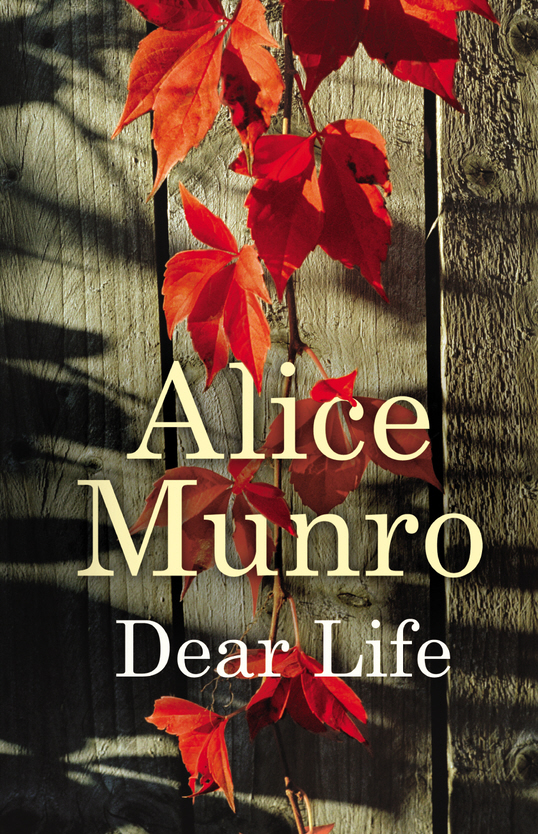Currently there’s a vibrant slew of talented writers shaping tales out there, in Shortstoryland – their metaphors spinning plates, their prose working so hard to create effect and energy that it almost hyper-oxygenates from the effort. From Lorrie Moore through Christopher Coake and Wells Tower through to this year’s discovery, the uber-talent Kevin Barry, they all work supremely hard on their language and the language rewards them by working hard to impress.
And in among them all, in among the purple bluster and jockeying swagger, in among the panting verbs made breathless by their exertions there’s the quiet one, Alice Munro. She breathes quietly, attentive to the rhythms of the ephemeral, pretty much knitting her tales together; surely, safely and always entirely persuasively. It’s become difficult to avoid qualifying her very name with the word “peerless’ but over the course of a dozen collections that is what this Ontarian redacter of tales has become. Her authorial voice is quiet, yes, and gently but insistently lilting, yet it is able to cut easily through the hubbub and clamour, telling her tales of life around Lake Huron with all mastery.

by Alice Munro
336pp, Chatto & Windus, £18.99
Her heroes and heroines are often wounded, by the past, or by disfigurement, or disability, but they still walk gamely on. One tale casually starts with a man and wife setting off to honour a suicide pact. In another a girl’s death by drowning leads to a devastating confrontation.
There are stories here where little happens, but in that Munro reflects the pattern of the quotidian, the not-very-extraordinariness of life, or at least the way the extraordinary comes unbidden, unheralded, almost, it seems unnoticed. Life goes on. And on. “Housewives who had finished washing the dishes and sweeping up the kitchen for the last time that day, men who had coiled up the hose after giving the grass a soaking.”
Her heroes and heroines are often wounded, by the past, or by disfigurement, or disability, but they still walk gamely on.
In one of the stand-out stories, ‘Train’, a soldier called Jackson, returning from the war gets off a train and walks into a new life on a farm with a woman, a total stranger. Later, when she is in hospital, a cruel serendipity finds him offered a caretaker’s job and he walks into yet another new life, leaving her companion without a word. This peregrinating drift seems entirely natural and Munro makes no moral judgments about how easily – some might say callously – he leaves the two women in his life.
The words in this dozen stories are precision engineered, but it’s just that you can’t see the complicated workings, the painstaking hours of manufacture. Apart from the snow near a lake being “mounded” the language is simple, unadorned, but, when necessary, impossibly powerful. A man fires up an old flame for another woman. His wife dismisses his infatuation. “His enchantment was so dreary. It was like anybody else’s. Dreary.” How witheringly dismissive is that? A dreary enchantment. Classic Munro.
Memory, and its failings is a recurring theme. The story ‘In Sight of the Lake’ starts as if someone is telling a joke: “A woman goes to her doctor to have a prescription renewed. But the doctor is not there. It’s her day off. In fact the woman has got the day wrong, she has mixed up Monday with Thursday.” And with that simple mistake starts a concatenation of mishaps and forgetful moments as the elderly lady’s attempts to make sure a specialist doesn’t diagnose her as demented or some such become increasingly, well, demented. Not crazy, parrots in the rigging demented, mind, just a woman set adrift by her own memory, lost in a thicket of questions: where did she leave the keys, what is the doctor’s name, how do I get out of this nursing home I’ve accidentally locked myself in?
The volume concludes with a ‘Finale’ in which Munro presents us with a quartet of pieces which aren’t stories, but which, rather, form a unit which is “autobiographical in feeling, though not, sometimes, entirely so in fact. I believe they are the first and the last – and the closest things I have to say about my own life.” These fragments do illumine the work, and the psychology of the writer in much the same way as, say, Paul Auster’s The Red Notebook, allowing us to have a glimpse of the way in which Munro transmutes life – and we are talking so often about her own life – into art. But they remain, stubbornly, un-stories, as it were, though closer to truth as she says.
If Ken Dodd is the comedian’s comedian, or Elizabeth David the cookery writer’s writer then Munro is the writer’s writer. In the Guardian review of Dear Life Anne Enright declared her love for her, or at least her stories. Enright is unutterably right to be enthralled by her. Alice Munro gives us life. What more could a writer do?










